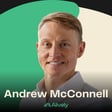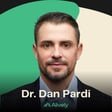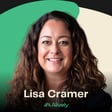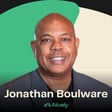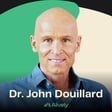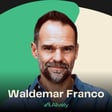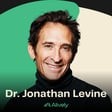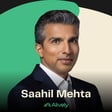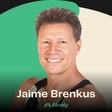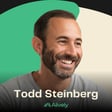
Healing Chronic Illness with Dr. Kien Vuu - E40
Living with chronic illness can often feel like an uphill battle, leaving you feeling exhausted, hopeless, and trapped in a cycle that seems impossible to break. Conventional treatments can fail to address the core issues, leaving people without effective solutions. In this episode, we take a different angle on healing from chronic illness. We'll explore more innovative and out-of-the-box thinking, as well as a shift in perspective that addresses not just symptoms, but the root causes through lifestyle changes, mindset shifts, and deeper social connections.
Dr. Kien Vuu, known as "Doctor V", is a performance and longevity physician with training in nutrition, personal development and spirituality. He was an assistant professor of Health Sciences at UCLA, where he specialized in Interventional and Diagnostic Radiology, and earned board certification from the American Board of Anti-Aging and Regenerative Medicine. His personal journey of overcoming chronic illness led him to explore modalities outside of traditional medicine. This included personal development, anti-aging, and regenerative medicine, which transformed his approach to health. His clients and audiences benefit from his engagements at global conferences and events where he shares insights into living a vibrant life.
“Intermittent pressure or stress in a healthy ecosystem over time will lead it to growth and resilience.” - Dr. Kien Vuu
In this episode you will learn:
- How Dr. Vuu transitioned from traditional medicine to a broader understanding of health by reversing his own chronic conditions through lifestyle changes.
- The significance of the default mode network in the brain and its impact on mental health, stress, and overall well-being.
- Dr. Vuu's daily practices for increasing awareness and presence, including the I.M.P.A.C.T. technique for managing emotional triggers.
- The importance of genuine social connection and how to cultivate it through generosity and vulnerability.
- Dr. Vuu’s approach to sleep hygiene and its critical role in regulating the nervous system for optimal health.
- The benefits and nuances of intermittent and prolonged fasting, emphasizing the need for personalization in hormetic practices like exercise and diet.
Resources
- Connect with Dr. Vuu on Instagram: https://www.instagram.com/doctorvmd
- Find out more about Dr. Vuu’s techniques and resources, Thrive State: https://thrivestatestarter.com/
- Shop all the products Dr. Vuu mentions in this episode: https://alively.com/products/kien-vuu
This podcast was produced by the team at Zapods Podcast Agency:
https://www.zapods.com
Find the products, practices, and routines discussed on the Alively website:
https://alively.com/
